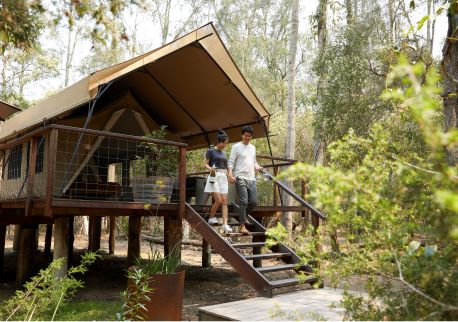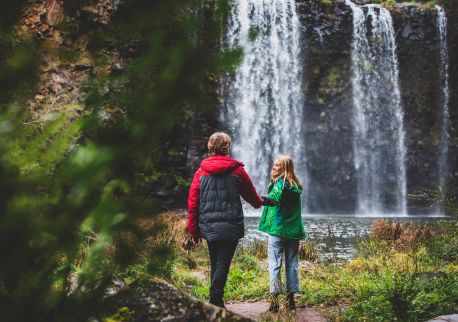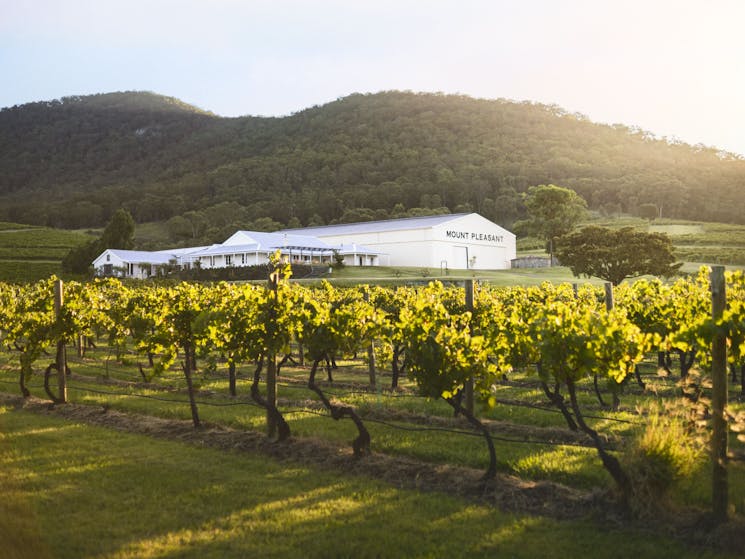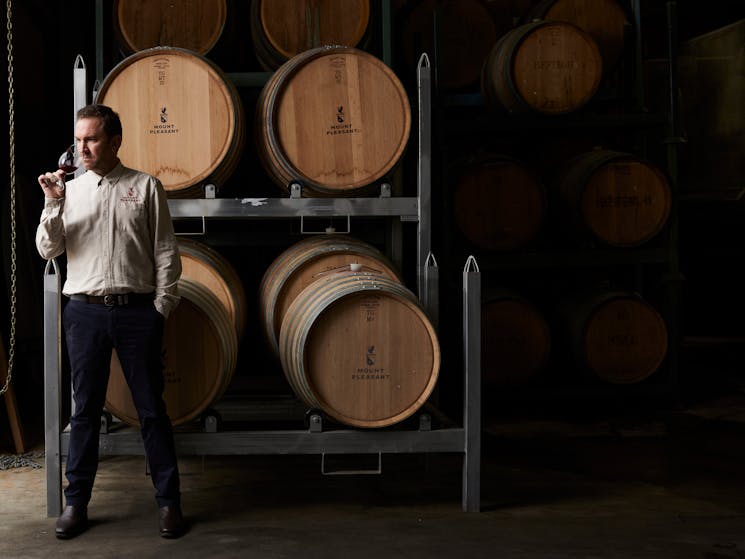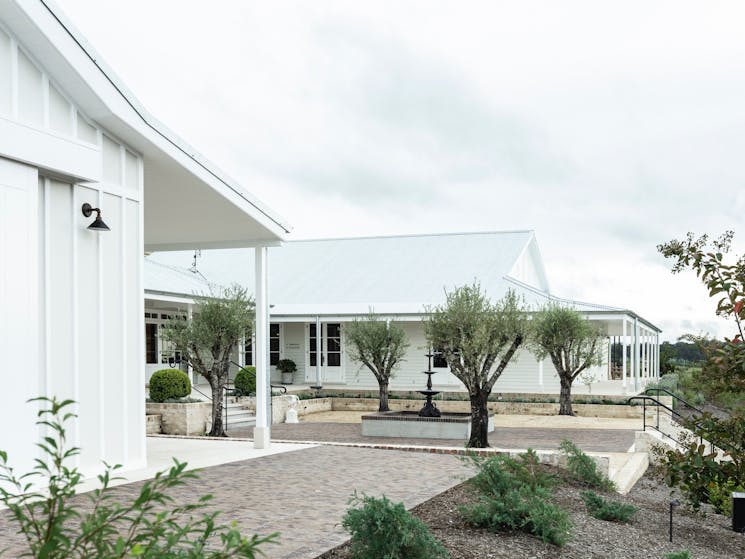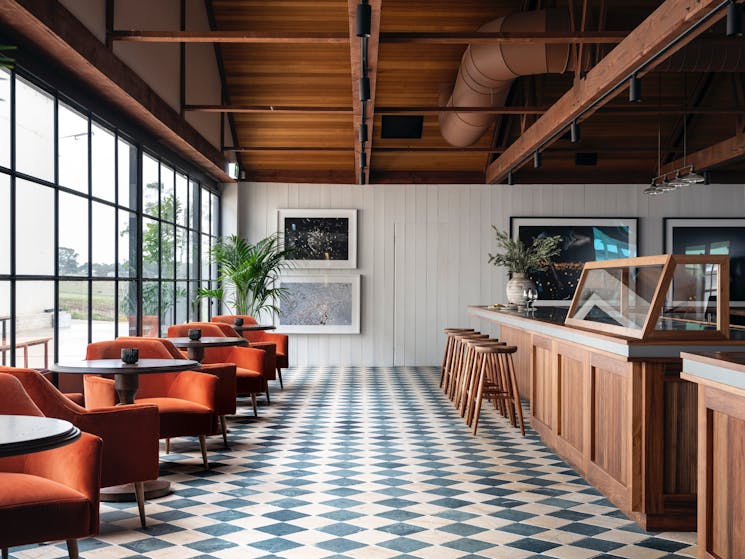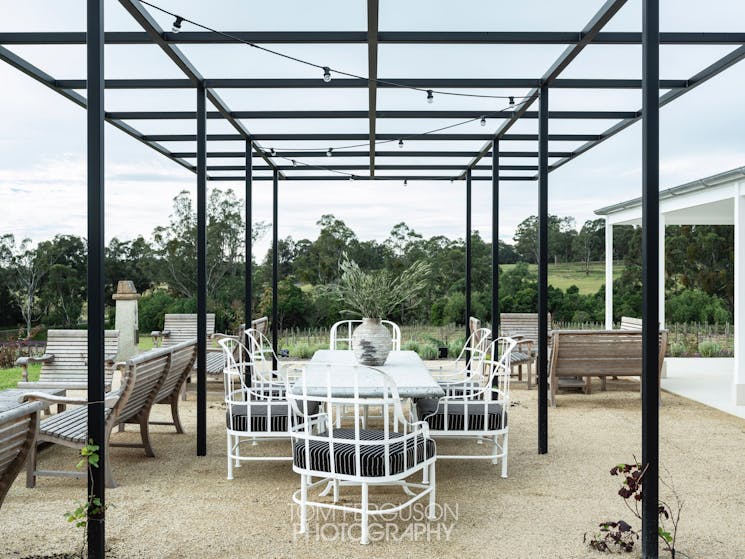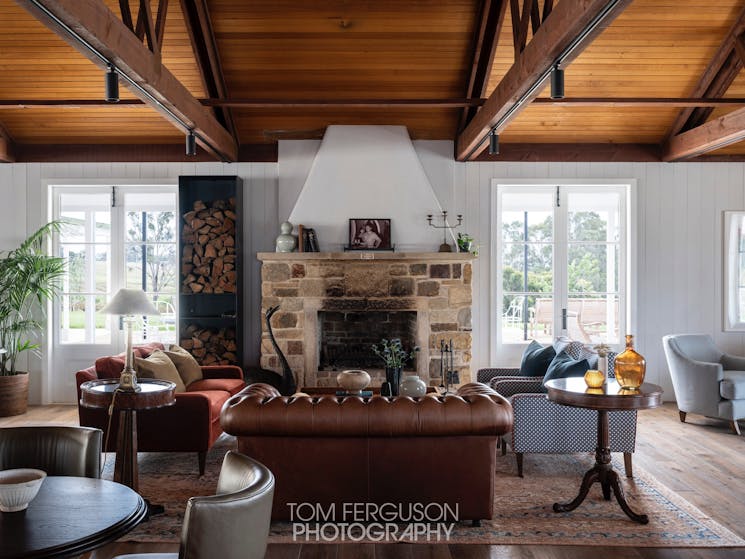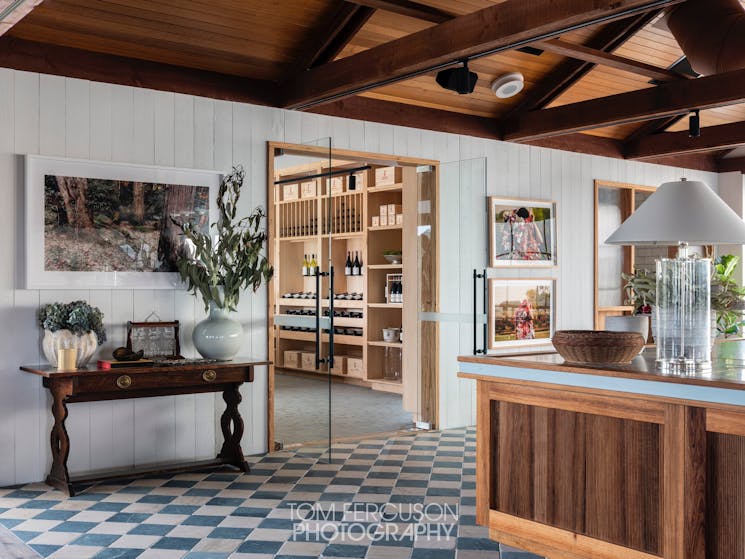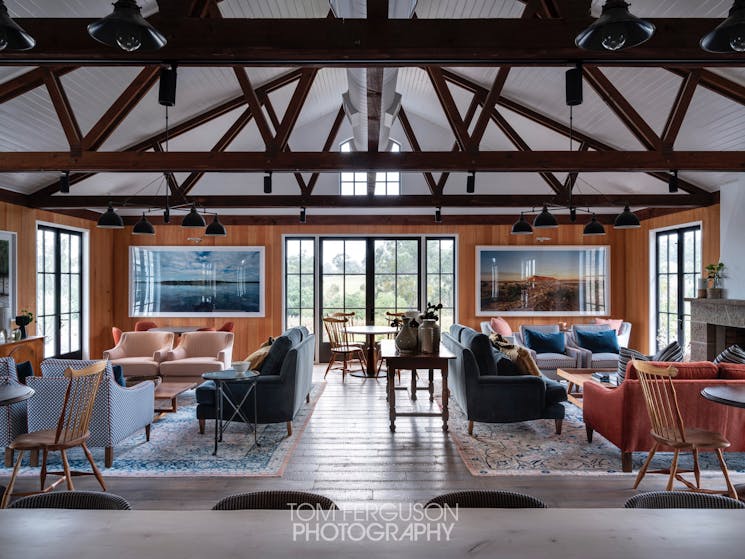Mount Pleasant Wines
Overview
For over a century, Mount Pleasant has set the benchmark for winemaking in Australia.
As you step into the historic homestead you can start to understand that the Mount Pleasant homestead is the perfect setting to explore some of Australia’s most iconic wines. Sitting in their cellar door overlooking the vineyards that O’Shea transported into the vineyards.
Founded by Maurice O’Shea in 1921, whose contribution to Australian wine cannot be understated, widely known as the founding father of modern Australian winemaking.
The rare ancestral vines include some of the oldest clone plantings in the country. This makes the Old Hill vineyard, while best known for Shiraz, the oldest Pinot Noir vineyard in Australia.
Discover the complexity of Hunter Valley Shiraz and Pinot Noir, and the aging capabilities of the widely acclaimed Lovedale Semillon, which is regarded as one of the greatest Semillon vineyards in the world.
The chief winemaker, Adrian Sparks, has crafted a selection of tasting experiences that showcase the beauty and individuality of the unique and historic vineyard sites.
Mount Pleasant is a winery that, for over 100 years, has challenged conventions and set the standard for modern Australian winemaking.
Many have followed, but there is only one Mount Pleasant.
Accessibility
A quiet space is available at the venue/ facility
Actively welcomes people with access needs.
Caters for people who use a wheelchair.
Caters for people with sufficient mobility to climb a few steps but who would benefit from fixtures to aid balance. (This includes people using walking frames and mobility aids)
Have a wheelchair accessible toilet / shower and change room
Have an accessible public toilet which is unlocked
Have at least one wheelchair accessible parking space with wheelchair accessible signage clearly displayed (International standards are 3200mm wide x 2500 mm high)
Have grab rails in the bathroom
Have step free access to restaurant, lounge and bar
Have step free access to the conference or function room
Have step free outdoor pathways (includes picnic areas, barbecues and shelters)
Offer a range of contact methods for receiving complaints
Offer multiple options for booking - web, email, phone
Provide assistance with booking arrangements (includes providing clear itineraries with written instructions on what to do at various destinations)
Provide seating in common areas including reception area
Use Plain English / easy read signage and information (includes menus and emergency information)
Welcomes and assists people who have challenges with learning, communication, understanding and behaviour. (includes people with autism, intellectual disability, Down syndrome, acquired brain injury (ABI), dyslexia and dementia)

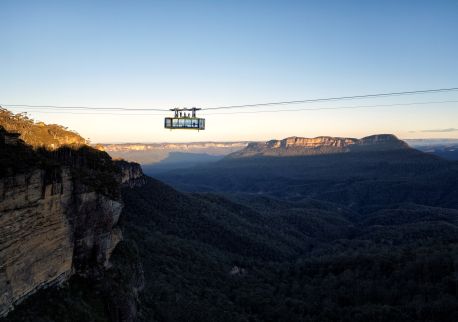
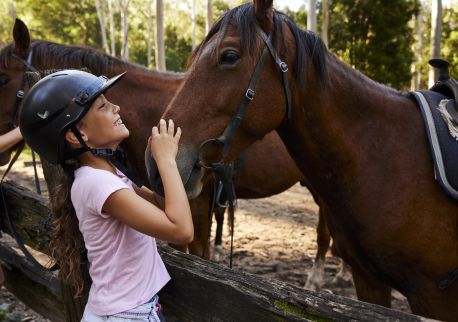
.jpg?h=b9ed6e60&itok=3PLfeieL)

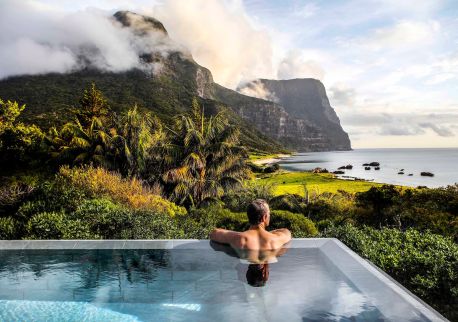
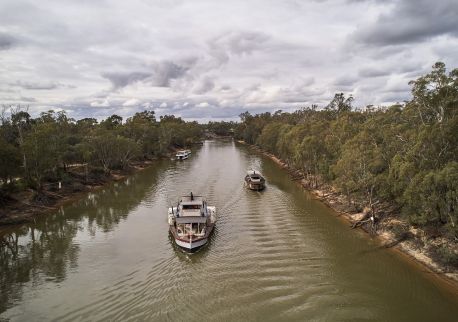

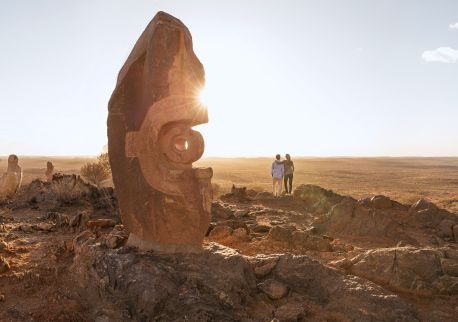
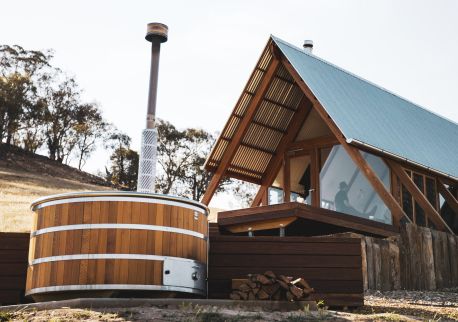


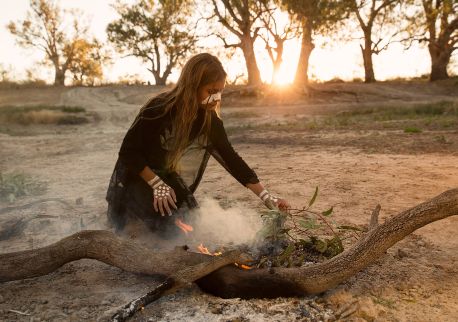
.jpg?h=d9f98e8a&itok=rUhd3pgd)
.jpg?h=c813bc7b&itok=XF1hMB0e)
.jpg?h=3c631b11&itok=4Pi3SECS)
.jpg?h=d8b8f6c8&itok=Z3TU1EW1)

